This newsletter concerns itself with the great patriotic project to turn America into a banana republic, but something gets lost by doing that episodically. Each day we study some crooked new tree that Donald Trump’s administration has planted; rarely do we step back and consider how large the forest has already become.
Here’s Andy Craig at The UnPopulist, stepping back:
Since Jan. 20, the United States has been in a state of rapid constitutional collapse. Congress’ power of the purse, its most fundamental prerogative, has been usurped; statutory laws have been suspended by claimed “emergency” powers; the requirement for Senate confirmation has been made irrelevant; a transparently political purge of both the civil service and the armed forces has been launched; the president has threatened aggressive military force against longtime allies; a decree was issued to strip constitutional citizenship rights; our treaty obligations have been blown up with a self-sabotaging trade war; mass pardons have been used to gleefully sanction political violence; courts have been defied to send innocent people to a Central American torture camp; the world’s richest man has deployed a gaggle of racist hackers to shut down government agencies on a whim; and, just as we were going to press, news broke that Harvard University has been barred from enrolling foreign students because of its refusal to hew to the president’s ideological demands.
What Craig is describing is essentially a hostage crisis.
An authoritarian state is a national hostage crisis. Some person or group has stormed a location and taken control of it quickly. The captors are threatening to hurt people if they don’t get what they want; they may in fact harm one or more hostages just to prove that they mean business. If you end up at their mercy, your choice is to follow instructions or take the consequences. There isn’t much the police can do that won’t turn a bad situation into an explosive one.
The one element missing from Craig’s assessment is ransom. On Thursday night the president kept his promise by rewarding major investors in his cryptocurrency with a private dinner in Virginia, completing what may be the most brazenly sleazy scam in the history of the office. “Bribery” doesn’t capture it because bribery typically happens furtively, to hide the corruption. The arrangement makes more sense as a sort of ransom, a payoff to a captor that takes place in plain sight because the law is powerless to prevent it.
There are a lot of those nowadays, you may have noticed.
Our hostage crisis will last another 44 months, maybe more. What lessons have we learned from the first four?
Captors rarely have a strategy.
The stereotype most of us have of hostage-takers is that they’re organized, sometimes brilliantly so. Think Hans Gruber and Nakatomi Plaza: It takes real strategic chops to rapidly subdue an office tower full of people, seize hundreds of millions of dollars’ worth of bearer bonds, and almost make off with the loot.
But that stereotype is silly. Most hostage crises aren’t orchestrated by coolly ingenious master-planners. They’re what happens when someone who’s ruthless, audacious, volatile, and cunning but not very bright makes a mess of his caper, like a bank robber whose hold-up takes longer than expected. He turns to leave and finds cop cars pulling up outside, causing him to panic and to start taking hostages instead.
There’s no “plan.” He just doesn’t know what else to do now that a wildly reckless, dangerous course of action like robbing a bank has suddenly gone sideways.
That was also the theme of yesterday’s newsletter, not coincidentally. The One Big Beautiful Bill that passed the House on Thursday is incomprehensible as a plan to strengthen America fiscally. It makes sense only as a desperate act in the midst of a dangerous caper gone bad: Having decided long ago that making Trump happy is more important than protecting the country, House Republicans acted accordingly when forced to choose.
Friday brought a new reminder that there’s no plan to our national hostage crisis. After imposing steep tariffs on “Liberation Day” and rolling them back a week later when markets revolted, the president woke up today and decided for some reason that it’s time to blow up global trade again. He’s now “recommending” a 50 percent tariff on imports from the European Union beginning on June 1, complaining that negotiations between the two sides are “going nowhere.”
Having chosen a wildly reckless, dangerous course of action like starting a worldwide trade war and having seen it go sideways, he’s resorting in his panic to more hostage-taking. There’s no plan. He just doesn’t know what else to do.
Ditto, I’m sure, for the demand he made of Apple this morning to start manufacturing iPhones in the United States pronto or face tariffs of “at least 25 percent.” Some Wall Street analysts estimate that an iPhone made in the USA would cost at least 25 percent more than the current version and could reach prices in the neighborhood of $3,500(!). If that’s so, and if Trump is serious about his threat, we might plausibly end up with the worst of both worlds—a much more expensive product for consumers to buy but no new American jobs because it’s still more cost-effective for Apple to manufacture the phone overseas, subject to tariffs, than to do so here.
There’s no plan. Our captor is behaving the way captors tend to do in a hostage crisis, making histrionic demands to buy time as he frantically plots his next move.
Cooperation might not save you.
Anyone who knows the name “Hans Gruber” also knows the name “Harry Ellis.” Ellis was a model hostage at Nakatomi Plaza, going so far as to assist his kidnappers in their plot.
It did not end well for him.
Cooperating is the rational strategy in a hostage crisis for all parties involved. Hostages have an obvious reason not to challenge someone who’s armed, cornered, and already proven his willingness to commit serious crimes. And captors have an obvious reason not to harm those who cooperate: Once prisoners realize that following instructions might not spare them from being harmed, the incentive to keep following instructions may collapse. Flight 93 is the supreme example.
Few of the parties to America’s hostage crisis seem to understand all of that, weirdly. Private interests keep capitulating to the president and the president keeps punishing them for it.
Take Tim Cook, Apple’s CEO. Since the election Cook has dined with Trump at Mar-a-Lago, dropped a fat envelope into his inauguration fund, and recently pledged to invest $500 billion—no typo—in the United States during the president’s term. He did everything realistically possible to cooperate with an “America First” White House in hopes that it would cut Apple a break on products made overseas. This morning the president turned around and gave him the Harry Ellis treatment.
Or take Mark Zuckerberg, god-emperor of Meta/Facebook. Zuck has gone further than Cook in courting Trump, appointing one of the president’s Ultimate Fighting Championship buddies to Meta’s board of directors and cutting the president a $25 million check to settle a legal shakedown involving the First Amendment. He’s been an excellent hostage and must have expected that that would influence whether the Trump administration proceeded with pending legal claims against his company. Nope: The Federal Trade Commission’s antitrust lawsuit against Meta is in court this week and headed toward a verdict.
Cooperating with America’s Hans Gruber might not save you. On the contrary, the New York Times recently described what happened to law firms and universities that surrendered quickly to his threats: “Instead of rewarding those who capitulated early, the Trump administration pressured them even more.” Worse, China showed the world that refusing to let oneself be taken hostage might lead to better outcomes than submitting does. Their tit-for-tat trade retaliation against the U.S. produced a deal that slashed the new tariffs on Chinese goods from 145 percent to 30, lower than the rate that will hit the EU next week if an agreement isn’t reached.
Trump incentivized the world not to cooperate with him when he rewarded China for resisting and now he’s punishing everyone for reacting rationally to that incentive. When I say that kidnappers are audacious but not very bright, this is what I mean.
The police will eventually need to act.
There is no John McClane coming to foil this hostage crisis and save America.
I don’t know who McClane would even theoretically be in this metaphor. Amy Coney Barrett, maybe? Potentially?
The logical analog is Congress, which nominally retains the ability to throw Hans Gruber off the roof by impeaching him, but we all understand why that doesn’t work. If you’ve spent 30 seconds observing Speaker Mike Johnson or any other House Republican over the last five years, you know that they’re Harry Ellis, not McClane, to their core.
The closest thing to a police presence on the scene right now are House Democrats but they’re stuck in the Al Powell role of standing around outside the building offering moral support to Gruber’s antagonists and … not much else. That will need to change, hopefully sooner than January 2027. The crisis will not be resolved by convincing Trump that there’s no way out and he may as well give up before anyone else gets hurt. He doesn’t care who gets hurt, for one thing, but also there is a way out: He very well might continue to govern this way until January 2029, make his getaway, and enjoy a luxe retirement funded by all the valuables he’s stolen.
To stop him, the police will need to act. Is it time, then, for Democrats to start threatening the hostages too?
Last month Jonathan Last encouraged the minority party to begin putting people on notice that they’ll be punished eventually if they cooperate with a hostage-taker. The Democratic message to Trump enablers like El Salvador’s Nayib Bukele, Last argued, should be that when the American left regains power “they will turn the full might of the U.S. government against his regime and make certain that he ends his days like Manuel Noriega or Bashar al-Assad.”
His point came to mind a few days ago when I read the statement from House Democratic leaders condemning the federal criminal charges filed against Rep. LaMonica McIver over a fracas she got into with officials while visiting a detention facility for immigrants. “Everyone responsible for this illegitimate abuse of power is going to be held accountable for their actions,” the statement warned. “House Democrats will respond vigorously in the days to come in a time, place, and manner of our choosing.”
That sounds like a threat of future legal or political reprisal. I’m of two minds about it.
On the one hand, threatening collaborators with eventual punishment may be the only way to effectively discourage cooperation with an authoritarian regime. It complicates the usual calculus in a hostage crisis: Following instructions is the rational strategy—unless doing so will cause you just as many problems, if not more, when the crisis is over. When the cops can’t rescue the hostages themselves, the hostages need to be incentivized to rescue themselves.
On the other hand, once the police start threatening hostages, the moral line between cop and captor begins to blur. If the choice demanded of the average American is to decide which ruthless, audacious, and volatile party they’d rather be threatened by, those who lean right might simply default to the GOP. And Trump and the earnest fascists who surround him will surely exploit Democratic threats as an argument for trying to remain in power unlawfully in 2028. We must continue the current hostage crisis to prevent the hostage crisis Democrats are planning.
The police have no good options here. But in a hostage standoff they never do.
Americans don’t care.
Ideally I’d round off the metaphor by comparing voters to the crowds gathered behind Al Powell outside Nakatomi Plaza, gazing trepidatiously at the building and wondering what awful fate might await those trapped inside.
Americans should worry. David Frum summarized the last four months in four efficient sentences: “Arbitrary executive power wielded for personal enrichment and retribution. State central planning imposed by ever-fluctuating whim. Vast debt financing at rapidly rising interest rates. Markets replaced by economic warfare against fellow democracies.” Even if most of the hostages make it out alive, the tower is wrecked. It’ll never be the same.
Referring to the president’s tariff announcement this morning, one Twitter user said he’d “be curious to see how many attendees of Trump’s crypto dinner last night shorted the market today.” Already, though, less than six months into Trump 2.0, my gut reaction to a comment like that is: What does it matter? No Trump crony will be punished for insider trading, at least not by the federal government, and certainly not if the tip they got came from the president himself.
We don’t really do “law” here in America anymore. Citizens should be staring at the tower, worried sick that the roof might be about to blow. And they are, sort of, when you put them on the spot by asking the question directly.
But the truth is that, by and large, they’re less like the crowd gathered behind Al Powell and more like the crowd gathered in the movie theater that’s watching the action onscreen. They’re not worried. Many of them are entertained.
They like it when Gruber shoots people in the face.
Last week poll analyst Harry Enten provided a reality check for CNN’s viewers: Donald Trump isn’t becoming less popular. He’s becoming more popular, or at least more than he was a month ago when markets were having daily seizures over his trade policies. After he backed off his initial “Liberation Day” tariffs and undid his escalation with China, investors recovered their losses. His polls recovered too, rebounding from 7.2 points underwater late last month to just 1.7 points net negative today.
Of the 17 national polls conducted this month and tracked by RealClearPolitics, the president is under 45 percent in just three of them.
The glass-half-full view of that is that the mid-40s is a bad place to be for a newly elected leader who’s supposed to be in the middle of his honeymoon with voters. On this date four years ago, Joe Biden was a hair shy of 54 percent approval. Presidents tend to get less popular with time, not more, and Trump is starting out in a hole.
But most presidents don’t begin their terms by instigating the sort of wholesale authoritarian takeover described earlier in lurid detail by Andy Craig. That’s the glass-half-empty view: Having seized Nakatomi Plaza, wreaked havoc, and lined his pockets, Hans Gruber is polling at … normal levels for a president. His current position in the mid-40s has been par for the course in executive job approval since Barack Obama took office 16 years ago. And given the fanaticism of his fans, Trump is unlikely to fall far below that number unless he tariffs his way into another market meltdown.
Which, I grant you, is eminently possible.
The difference between our hostage crisis and the one at Nakatomi Plaza is that, in our case, captivity is a choice. Based on the last month of poll fluctuations, Americans who could make or break a Trump presidency by extending or withholding their political support seem to have decided that it all comes down to whether they get a cut of those bearer bonds he’s stolen. If their brokerage account takes a hit, it’s McClane time; if it doesn’t, McClane is just getting in the way.
We’ve become a nation of Harry Ellises. Happy Memorial Day.


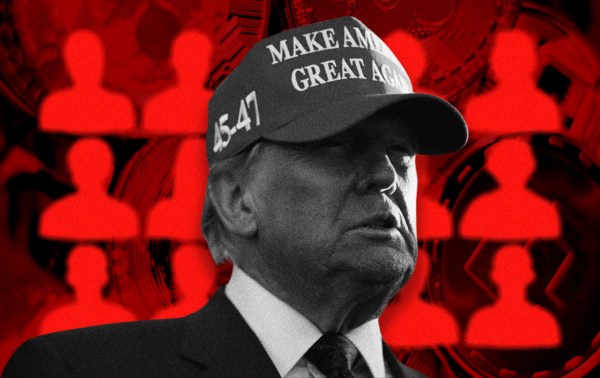
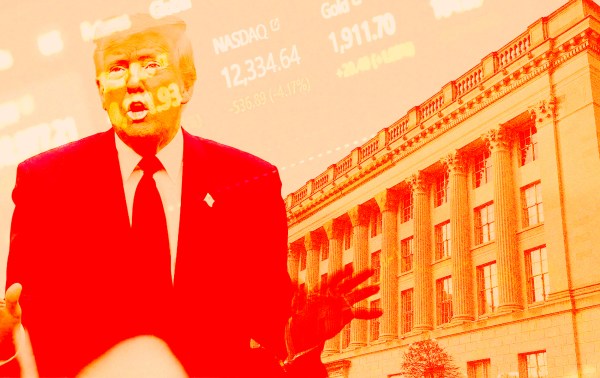
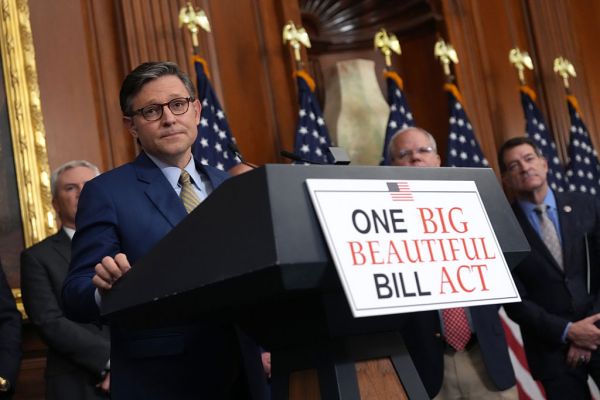

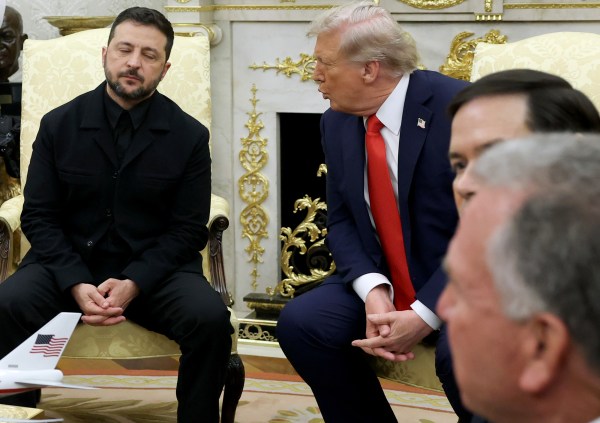

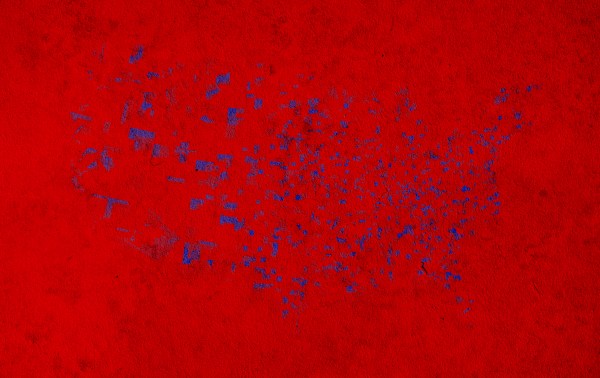

Please note that we at The Dispatch hold ourselves, our work, and our commenters to a higher standard than other places on the internet. We welcome comments that foster genuine debate or discussion—including comments critical of us or our work—but responses that include ad hominem attacks on fellow Dispatch members or are intended to stoke fear and anger may be moderated.
With your membership, you only have the ability to comment on The Morning Dispatch articles. Consider upgrading to join the conversation everywhere.